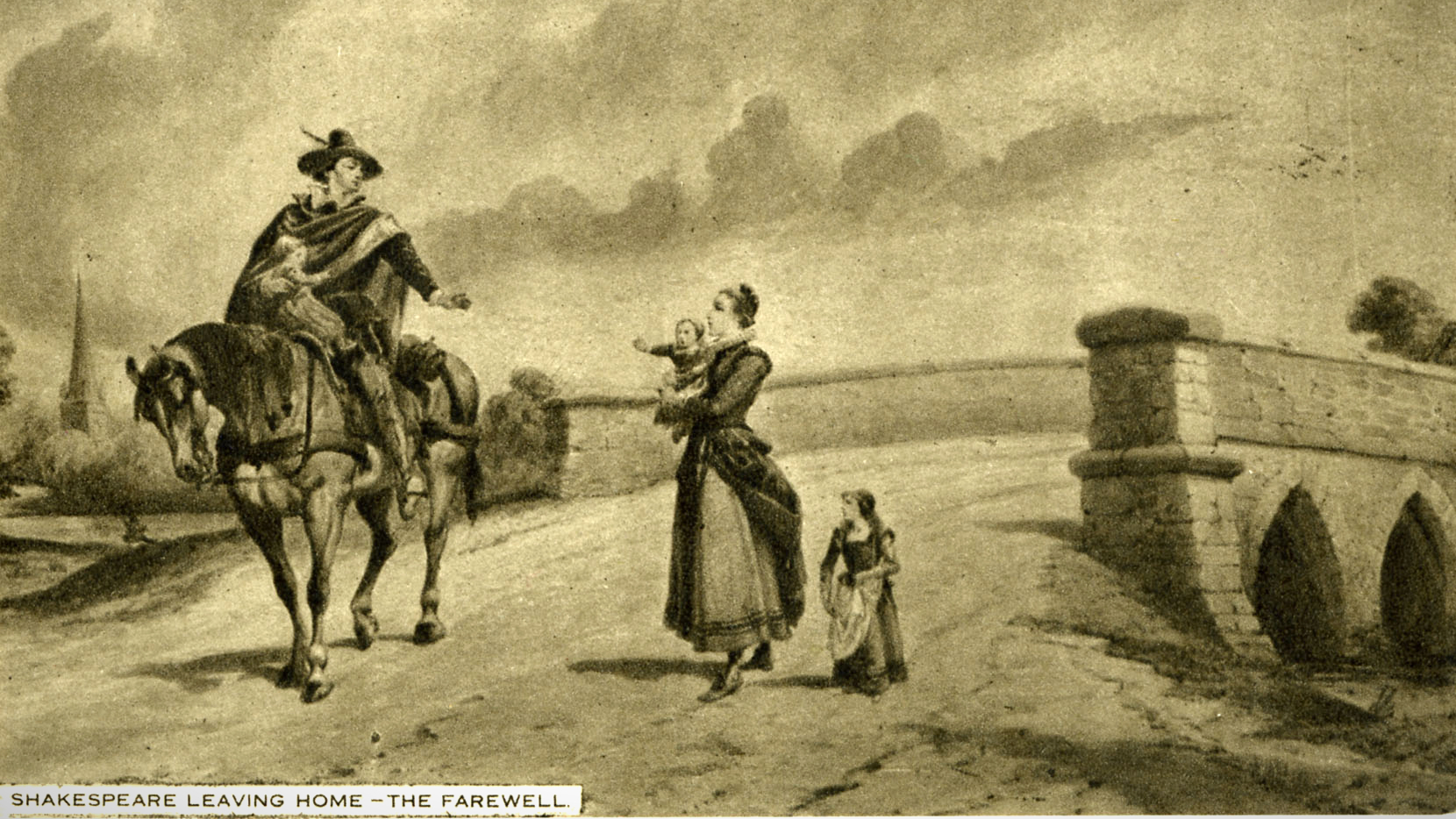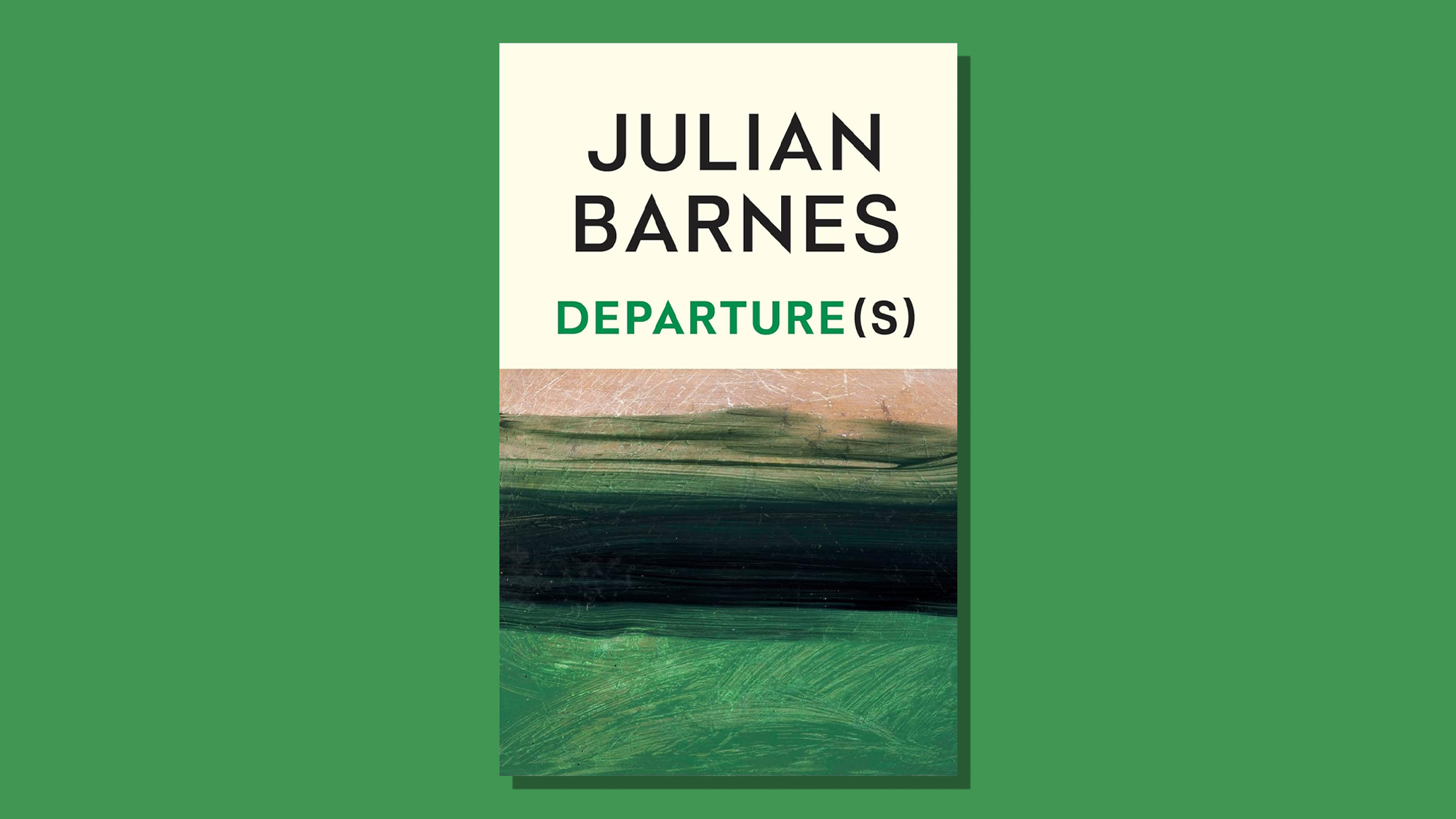Shakespeare not an absent spouse, study proposes
A letter fragment suggests that the Shakespeares lived together all along, says scholar Matthew Steggle


What happened
William Shakespeare was not an absentee husband living in an unhappy marriage to Anne Hathaway, as the couple has been portrayed for the past 200 years, a British scholar argues in a study published Wednesday in the journal Shakespeare. Instead, Matthew Steggle of the University of Bristol said, a letter fragment discovered in 1978 suggests the Shakespeares lived together in London during a fruitful decade in which the Bard wrote some of his most famous plays, including "Hamlet" and "Othello."
Who said what
Steggle's analysis "reads like a detective yarn set in the Elizabethan era," The Washington Post said. Over eight years, he followed the clues scattered through the letter to "Good Mrs. Shakspaire" of "Trinitie Lane." Steggle found that the subject of the letter, an orphan named John Butts, lived in London at the time, and there was a Trinity Lane in London — right across the Thames from Shakespeare's Globe Theater — but not in Stratford-upon-Avon, where Hathaway was traditionally believed to be "stashed" in a cottage while her husband was "living large as a lodger in swinging 1600s London," the Post said.
"For Shakespeare biographers who favor the narrative of the 'disastrous marriage' — in fact, for all Shakespeare biographers," Steggle said, the letter "should be a horrible, difficult problem."
The Week
Escape your echo chamber. Get the facts behind the news, plus analysis from multiple perspectives.

Sign up for The Week's Free Newsletters
From our morning news briefing to a weekly Good News Newsletter, get the best of The Week delivered directly to your inbox.
From our morning news briefing to a weekly Good News Newsletter, get the best of The Week delivered directly to your inbox.
What next?
Steggle provides "plenty of plausible evidence" but "no smoking gun," James Shapiro, a Shakespeare scholar at Columbia University, told the Post. It will likely "take some time for the smoke to clear and a new scholarly consensus" to emerge, but "if Steggle is correct," this "will overturn many accepted beliefs."
A free daily email with the biggest news stories of the day – and the best features from TheWeek.com
Peter has worked as a news and culture writer and editor at The Week since the site's launch in 2008. He covers politics, world affairs, religion and cultural currents. His journalism career began as a copy editor at a financial newswire and has included editorial positions at The New York Times Magazine, Facts on File, and Oregon State University.
-
 The Week contest: How now, smart cow?
The Week contest: How now, smart cow?Puzzles and Quizzes
-
 The UK’s supposed Christian revival
The UK’s supposed Christian revivalThe Explainer Research has shown that claims of increased church attendance, particularly among young people, ‘may be misleading’
-
 How long can Keir Starmer last as Labour leader?
How long can Keir Starmer last as Labour leader?Today's Big Question Pathway to a coup ‘still unclear’ even as potential challengers begin manoeuvring into position
-
 Departure(s): Julian Barnes’ ‘triumphant’ final book blends fact with fiction
Departure(s): Julian Barnes’ ‘triumphant’ final book blends fact with fictionThe Week Recommends The Booker prize-winning novelist ponders the ‘struggle to find happiness and accept life’s ending’
-
 Hamnet: a ‘slick weepie’ released in time for Oscar glory?
Hamnet: a ‘slick weepie’ released in time for Oscar glory?Talking Point Heartbreaking adaptation of Maggie O’Farrell’s bestselling novel has a ‘strangely smooth’ surface
-
 Golden Globes affirm ‘One Battle,’ boost ‘Hamnet’
Golden Globes affirm ‘One Battle,’ boost ‘Hamnet’Speed Read Comedian Nikki Glaser hosted the ceremony
-
 ‘One Battle After Another’ wins Critics Choice honors
‘One Battle After Another’ wins Critics Choice honorsSpeed Read Paul Thomas Anderson’s latest film, which stars Leonardo DiCaprio, won best picture at the 31st Critics Choice Awards
-
 The best alcohol-free alternatives for Dry January
The best alcohol-free alternatives for Dry JanuaryThe Week Recommends Whether emerging from a boozy Christmas, or seeking a change in 2026, here are some of the best non-alcoholic beers, wines and spirits to enjoy
-
 13 Gen Z workplace terms and phrases
13 Gen Z workplace terms and phrasesin depth From ‘quiet firing’ to ‘resenteeism,’ there are clues about why employers and employees in America are having such a sad time
-
 Let these comedians help you laugh your way through winter
Let these comedians help you laugh your way through winterThe Week Recommends Get some laughs from Nate Bargatze, Josh Johnson and more
-
 Joanna Trollope: novelist who had a No. 1 bestseller with The Rector’s Wife
Joanna Trollope: novelist who had a No. 1 bestseller with The Rector’s WifeIn the Spotlight Trollope found fame with intelligent novels about the dramas and dilemmas of modern women
